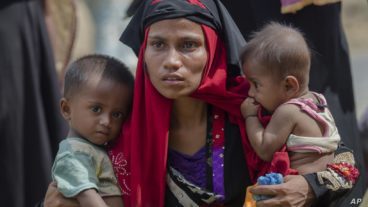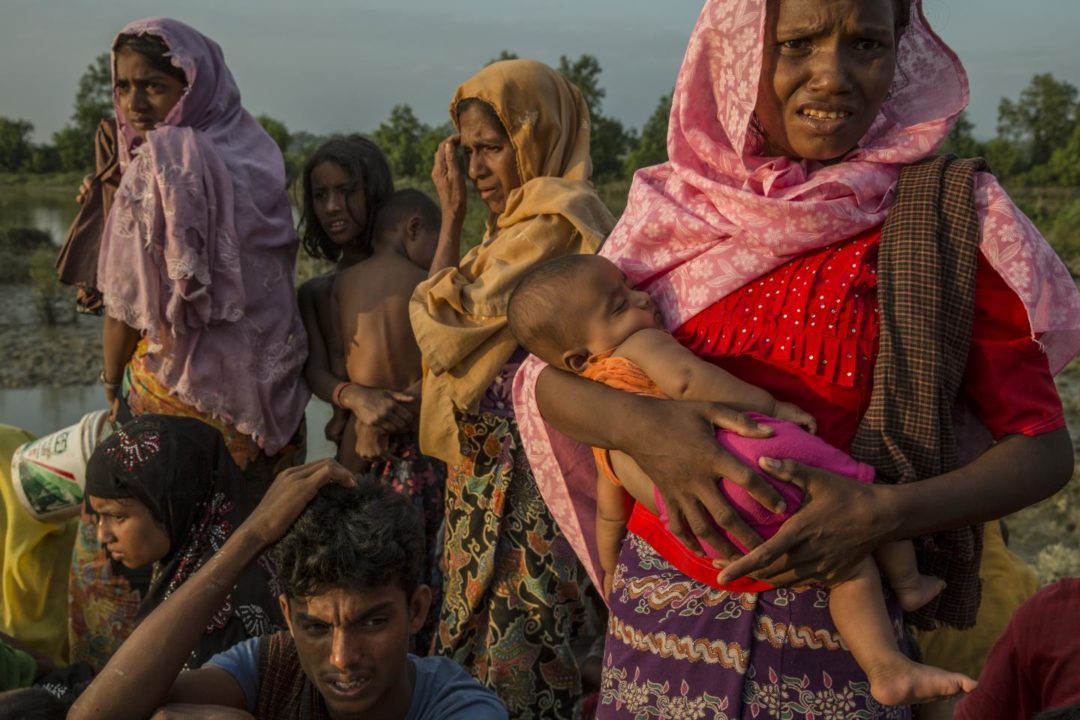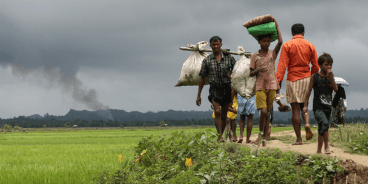

Name the Crime, Hold the Perpetrators Accountable: Statement on the Second Anniversary of the Rohingya Genocide
This Sunday, 25 August, will mark two years since the security forces in Myanmar (Burma) initiated so-called “clearance operations” against the minority Rohingya population in Rakhine State. The operations were characterized by indiscriminate killings, rape and sexual violence, and forced displacement. As a result, at least 350 Rohingya villages were burnt down or destroyed and 745,000 people – the majority of the Rohingya population – were forced to flee. Bangladesh, across the border from Rakhine State, is now home to the largest refugee camp in the world.
The Human Rights Council (HRC)-mandated Independent International Fact-Finding Mission (FFM) on Myanmar has concluded that the security forces committed crimes against humanity and war crimes in Rakhine State, as well as genocide against the Rohingya. According to the FFM, the treatment of the Rohingya population amounts to four of the five prohibited acts defined in the Genocide Convention. The FFM also concluded that Myanmar’s civilian authorities, including State Counsellor Aung San Suu Kyi, have not met their “responsibility to protect the civilian population” and enabled the commission of atrocity crimes.
The genocide against the Rohingya was the culmination of decades of institutionalized persecution. This includes the denial of citizenship, involuntary confinement to displacement camps, and severe restrictions on the freedom of movement, marriage and reproductive rights of the Rohingya, as well as access to employment and education. Before August 2017 Rohingya civilians already experienced lives of intense segregation, exclusion and apartheid. Two years later, Myanmar has failed to create conditions conducive to the voluntary, safe and dignified return of refugees from Bangladesh. All discriminatory laws remain in place.
Two years since the genocidal “clearance operations” began, the UN Security Council has still not adopted a single resolution to name the nature of the crime committed against the Rohingya, or to hold the perpetrators accountable. The Security Council should immediately impose a comprehensive arms embargo on Myanmar and targeted sanctions on all senior officers responsible for mass atrocity crimes in Rakhine State, including Commander-in-Chief Min Aung Hlaing. These measures should remain in place until the government demonstrates progress on key issues, including citizenship for the Rohingya, amending or repealing all discriminatory laws and policies that violate universal human rights, and holding those responsible for atrocities legally accountable.
UN member states and regional organizations should suspend all cooperation and training programs with Myanmar’s armed forces and also impose targeted sanctions. All investment in Myanmar should be conducted in strict adherence with the UN’s Guiding Principles for Business and Human Rights. Justice and accountability for crimes committed against the Rohingya should be pursued through all credible and appropriate avenues, including the International Criminal Court. The government of Myanmar should also be taken to the International Court of Justice for breaching its obligations under the Genocide Convention.
The Global Centre’s Executive Director, Simon Adams, said, “Two years ago the international community failed to prevent a genocide from being committed in Myanmar. But it is not too late to protect the Rohingya from further persecution and ensure that those responsible for their suffering face justice. Now is the time to act.”
Read Next

Related Publications

Atrocity Alert No. 422: Sudan, Myanmar (Burma) and the Democratic Republic of the Congo

